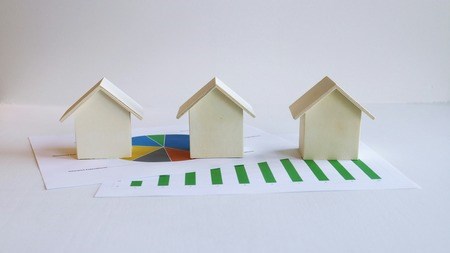The economic and political issues facing the country could have a detrimental effect on the residential property market.
Like most things, the residential property market thrives when conditions are right. A stable economy, investment, confidence and growth are but a few of the factors which support a healthy residential market. Unfortunately, the current environment is such that the residential property market is at risk of catching a cold.
According to FNB’s household and property sector strategist John Loos, most indicators point to tough times ahead. Four consecutive years of stagnating economic growth, the start of another year of interest rate hiking, weak commodity prices, deteriorating net foreign investment capital flows and a multi-year rand slide are all taking their toll.
Notes Loos: “We believe that the residential market is entering a super cycle ‘correction phase’ caused by a stagnating economy whose policy makers have little left to give in the way of fiscal monetary stimulus measures.
“This expectation is on the back of our forecast of real economic growth slowing further from 1.3% in 2015 to 0.5% in 2016 along with a further 50 basis points’ worth of interest rate hiking this year. In the subsequent years of 2017 and 2018, economic growth is only expected to improve marginally to just above 1% while the prime rate is expected to peak at 11% early next year and then move sideways.
“Under this weak growth economic scenario which implies a lack of employment creation and pedestrian household income growth, we project average house price growth to lose further steam, slowing from 6% average in 2015 to 4.8% in 2016 and then lower to nearly 3% in 2017 and 2018.”
Loos adds that should the world go into recession there would be additional downward pressure on employment and real disposable income growth of households which could lead to house price deflation.
“It is important to stress though that residential market risks do not always equate to actual market performance at a given time. The two concepts are different things, although rising market risk does often eventually manifest itself in a deterioration in performance. There are also natural ‘leads and lags’ which need to be factored in going forward.”
Of course there are other risks which could impact the residential property market. Johan Burger, a director and certified financial planner at Brenthurst Wealth explains that the current crisis playing out in South Africa’s political circles is just one such risk.
Notes Burger: “Investors in any asset class do not like political uncertainty the likes of which South Africa is currently experiencing. The current bout of uncertainty which started with the so-called ‘Nenegate’ in December 2015 affects the exchange rate which in turn has an immediate impact on the property investment outlook.
“The current uncertainty is also contributing to the widely expected downgrade of South Africa’s credit rating to ‘junk’ status. Most analysts are of the view that the downgrade is now a certainty given recent events and various other factors which the ratings agencies take into consideration. Such a downgrade will have an immediate and detrimental impact on the economy in that inflation will rise and interest rates will go up, making property ownership and investment more challenging.”
Burger explains that above-inflation levy and maintenance increases and an oversupply in rental properties in certain nodes will also have a negative impact on the property investment outlook and make it difficult for landlords to charge inflation related or above inflation rental increases. In the future, he says investors would have to be particularly careful and weigh up the anticipated returns of a property in relation to the higher costs.
Adds Burger:
More than ever before location is very important. There are many areas and suburbs where there is little to no growth but select areas continue to do well. Again, careful research is necessary as capital growth may be very low for several years in many areas.





